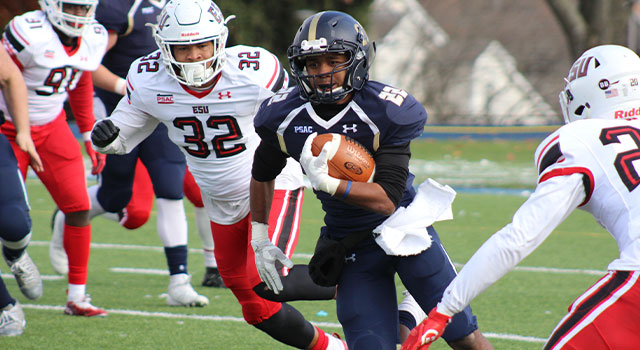 Binocular vision is the ability to create a single image with both eyes while maintaining visual focus on an object. Sometimes our eyes fail to integrate visual information into one coherent image. This integration is important, as it allows athletes to perceive three-dimensional depth and relationships between people or objects, such as another player or a ball.
Binocular vision is the ability to create a single image with both eyes while maintaining visual focus on an object. Sometimes our eyes fail to integrate visual information into one coherent image. This integration is important, as it allows athletes to perceive three-dimensional depth and relationships between people or objects, such as another player or a ball.
Since each eye is in a different position relative to any object, the eyes convey slightly different spatial information and send these varying images to the brain. The brain then uses the differences between the signals from the two eyes to accurately judge depth, speed, and distance.
When binocular vision isn’t operating at peak capacity, it impacts an athlete's reaction time and the speed and accuracy of their movements.
Reduced binocular vision doesn’t mean that athletes are constantly falling over or fumbling. What it does mean, however, is that they may misjudge the velocity or direction of a ball, or collide more with other players.
How Does Reduced Binocular Vision Affect Athletes?
When our brain and eyes don’t work efficiently as a team, especially while playing sports, it can affect timing, depth perception, reactions, accuracy, and speed.
Visual deficits hinder how an athlete responds to what they see. If there is an issue with a player’s vision, there will most likely be an issue with their balance and body awareness.
Visual Skills Needed For Sports
There are many visual skills athletes need to perform their best during a game.
Accommodation - is the eyes’ ability to change their focus from distant to near objects and vice versa. For example, when a football player looks at other players coming toward them, then shifts focus to the ball on the field.
Binocular Vision - is the ability to maintain visual focus on an object, creating a single visual image with both eyes. Without binocular vision athletes cannot accurately measure distance and depth.
Depth Perception - is the ability to distinguish the distance to, or between, objects. This is important for athletes when they need to hit or interact with moving objects.
Dynamic Visual Acuity - the ability to see a moving object when a player is stationary, or when the object is still and the athlete is in motion. It's the eyes' ability to visually discern detail in a moving object, such as a player's number on a jersey.
Peripheral Vision - is the ability to see objects and movement outside of your direct line of vision. This is important for athletes, especially when they need to run down a field and be able to see other players coming at them from all directions.
Saccades - quick, rapid, simultaneous eye movements between two or more stationary objects in the same direction. For athletes it’s important to be able to see stationary objects, such as a hoop at the end of the court.
Smooth Pursuits - reflexive eye movements that are required when tracking an object through an environment, such as a flying ball. Instead of the eye moving in jumps, it moves smoothly.
Sports Vision Training
Sports vision training can improve all the visual skills an athlete needs to succeed at their game. Even if an athlete has ‘20/20 eyesight’ they may still have reduced binocular vision, and sports vision can help improve any lagging visual skills. Sports vision is an individualized training program that focus on improving visual skills so that athletes can improve their performance.
The ability to enhance an athlete’s sports vision skills is a proven way to improve performance. To learn more about how sports vision training can help you reach your goals, contact us at Sports Vision Center at The Center for Vision Development today.
Sports Vision Center at The Center for Vision Development serves patients from Austin, Waco, Round Rock, and Buda/Kyle, all throughout Texas.
Q: What is sports vision training?
- A: Sports vision training is a customized program that improves the communication between your brain, eyes, and body. It helps athletes process information more accurately and react faster to what they see on the field.
Q: Why is sports vision training important?
- A: Athletes in visually demanding sports need to have exceptional visual skills. This is true for all sports, where the ability to focus, react quickly, and move fast can mean the difference not only between winning and losing, but between incurring an injury and staying safe.
